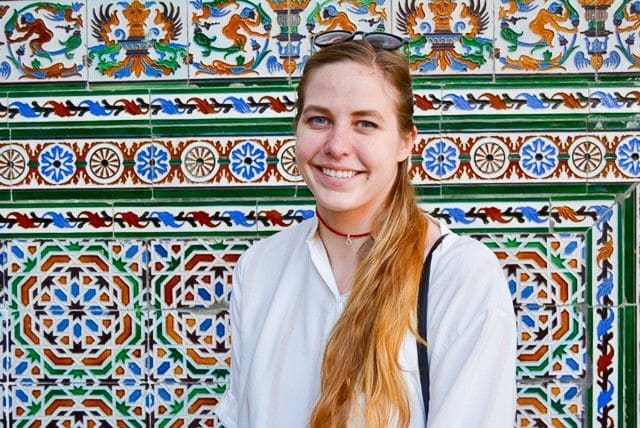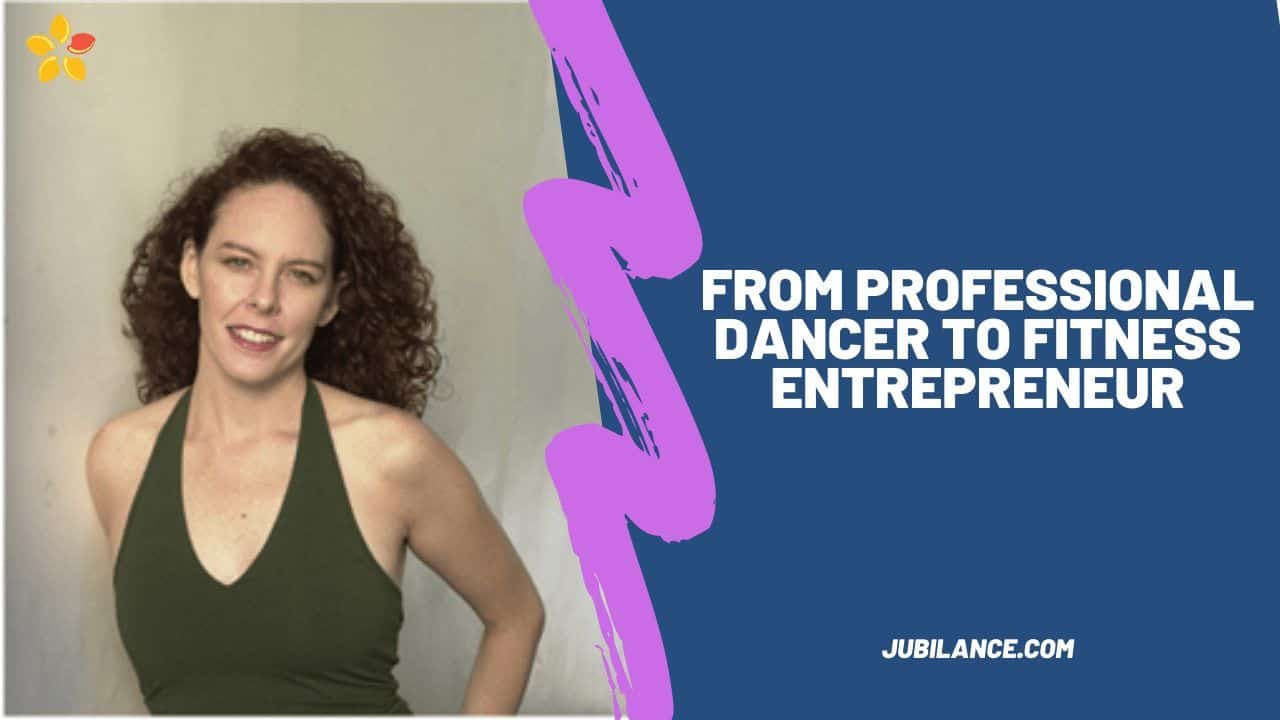A professional volleyball player currently living it up in Switzerland, Rachel Giustino is anything but ordinary. Hailing from Illinois and from Murray State with 1,764 total kills (when you hit the volleyball over the net and get a point), this queen of the court was the Ohio Valley Conference Player of the Year and an honorable mention All-American by the American Volleyball Coaches Association. This Outside Hitter comes from a family of athletes, her dad, Gerard, played pro baseball after also being a college athlete. She eventually wants to become a dentist and after graduating from college last year, she experienced the graduation within the shut down!
Watch her interview:
Listen to her interview:
Read her interview:
Alice: A professional volleyball player currently living it up in Switzerland, Rachel Giustino is anything but ordinary. Hailing from Illinois and from Murray State with 1,764 total kills when you hit the volleyball over the net and get a point in case you do not know what that is. This queen of the court was the Ohio Valley Conference Player of the Year and an honorable mention All-American by the American Volleyball Coaches Association. This outside hitter comes from a family of athletes, her dad Gerard, played pro baseball after also being a college athlete. She eventually wants to become a dentist and after graduating from college last year, she experienced the graduation was shut down. We are so excited to talk to her about all of this. Welcome, Rachel.
Rachel: Hello.
Alice: Yey. We are so excited that you are here.
Rachel: Thank you. I am excited to be here.
Alice: Wow. Okay, so we start off with some fun questions. Okay, what is the job that you thought you would have when you were five?
Rachel: Okay, so like most little kids who think science is cool, I was so certain that I was going to be a marine biologist. And I thought this because I felt in my heart like I was a mermaid and I was like, “That is just the job for me.” Like, “I meant to be with the ocean animals.” and so, you know.
Alice: Oh my gosh. Did you think you could grow a tail?
Rachel: Yes. Have you ever seen the Thirteenth Year?
Alice: Yes, and it is so good.
Rachel: On my 13th birthday, my heart was broken when I did not grow gills.
Alice: So sorry. Wow.
Rachel: So kind holding out but —
Alice: I love that film. It was so good. Did you also watch H2O?
Rachel: Yes.
Alice: It was so good.
Rachel: Yes, it was. Any kind of mermaid content. I was here for it.
Alice: Yes, our other sister Gretchen, she watches that series like once a year. She is obsessed.
Rachel: Really?
Alice: Yes.
Rachel: That is amazing.
Alice: Speaking of obsessed. What are you obsessed with?
Rachel: I would not say that I am an obsessive person. I think that I have a genre of information, I know a lot about various science topics. I think microbiology is really cool and the gut microbiome is something that I would love to research more. But I will not say it is like an obsession more of like an academic interest.
Alice: That’s really cool. I have many obsessions which are probably not great.
Rachel: Well, I met your sister so I can see that.
Alice: That makes sense. What is your favorite snack?
Rachel: I am definitely a salty snacker. So any kind of pita chip, pretzel chip that I can scoop, shovel, hummus into my mouth with, that is really I would say somewhere in my favorite. But currently, I am living in Switzerland and the chocolate here is ridiculous and I eat much more than I am willing to tell you.
Alice: Oh my gosh. I wish I could have some break. Now, Samantha, my sister brought some home and it is just amazing, it melts on your tongue.
Rachel: It is so good. And you know, they say that it is so good, and so when you arrive, you are like, “Well, it is got to be so good.” And it blows all your expectations. It is that good.
Alice: I am normally not a milk chocolate person. I like to gravitate towards dark chocolate, but it is just amazing. How do they make it so much better than anywhere else?
Rachel: I wish I knew. I would be wealthier if I did.
Alice: Yes, that is true. Speaking of your life abroad, where is your favorite place you have ever traveled?
Rachel: I went on a business trip with my dad two spring breaks ago. He had some meetings in Dubai and I got to be his assistant. And that was just so incredible, everything there is gorgeous. There is not like an ugly car, there is none ugly sidewalk, there is not an ugly person. Everything in Dubai is plated in gold. It is gorgeous.
Alice: Wow, that is amazing. What were you guys doing there? So your dad
go to work —
Rachel: Work all day. And so I hung out in the hotel. I walked around. I did not do very much stuff by myself because being a woman in the UAE was kind of — I was not really supposed to be alone. So I hung out in the fancy hotel.
Alice: Well, that sounds really fun.
Rachel: Yes. It was incredible. I would love to go back.
Alice: Wow. And can you talk about where you are living now? So you are in Switzerland, can you talk about your little town that you are in?
Rachel: Yes. So I am living in Düdingen. It is a 20-minute train ride from Bern which is I guess the technical capital of Switzerland but it is definitely not the biggest city here. But Düdingen is this teeny tiny little town, I live right across the street from the train station, so I feel very connected to the rest of Switzerland. But it is got one main road, all of the grocery stores and restaurants are on this road. I also live across from the doctor’s office and I lived next door to a kebab place, and I often make jokes that I live there.
Alice: That is amazing. I love kebabs. Have you tried it?
Rachel: I also love kebabs.
Alice: That is awesome. Wow, that is so convenient. What is your favorite part about living in Switzerland?
Rachel: I think this is the first time that I have ever really lived — this is the first time I have ever lived abroad and so just getting to kind of experience European culture is really cool. And I think that Switzerland is a unique place because it is sort of a hodgepodge of different cultures similar to the way that America has a bunch of different cultures, all kind of combining into this new unique dynamic. And that is kind of what Switzerland is. In the town that we live in actually is right on the border between the French-speaking cantons and the German-speaking canton, so I hear French and German and English all the time and it is just kind of this neat little meeting place.
Alice: That is so cool. Do you speak either of those languages?
Rachel: No. Sadly. I took eight years of Spanish and so I can speak —
Alice: Oh wow.
Rachel: — intermediate Spanish I could get by. And so sometimes the French makes a little more sense to me because it is a similar route. So I can figure things out, but no, I am hopeless with German.
Alice: Okay. Do they speak a lot of English there too then? You are able to get by?
Rachel: Yes. Most people like if I have to speak with someone in a store or at the post office, there is usually a young person there who speaks English. I would say that a lot of the younger generation speaks English. And I have started to recognize enough words that sometimes I do not even have to ask but really most part, people speak English.
Alice: Oh, cool. And you came there in a very different type of situation. Can you talk a little bit about the past year? I mean, we have had COVID, it has been quarantined. Did you even know that you were going to play? Can you talk a little bit about going from your graduation at Murray State and how different that was to make it overseas?
Rachel: Yes, absolutely. So kind of when COVID started to become more of a serious thing in the US like when people started to actually think that it was happening here. I was finishing up my last semester of college and there was talk about COVID but it had not shut anything down yet, no one had been impacted by it yet in the way that we now see that everyone has been impacted by COVID. So we were all just kind of like — they were rumors, like, “Oh, this could get bad.” but it did not feel very real. And I was thinking about where I was going to play overseas. So my head was completely somewhere else. I was fielding calls from various European men. I said that the whole process of finding where I was going to play was like speed dating. I was getting phone calls all the time and it was just like, “How can I help you?” So all of this is happening and then we go on spring break. And I was going on a backpacking trip in Florida, and at that point, COVID was more real, I guess is what would you say, people knew that it was happening but I thought barely safe going on a backpacking trip because there was going to be me and my three friends in a car, we will not going to be around other people, we were going hiking and camping, we were gonna be far away from others. And so I go on this trip, and on the second day or third day, we got an email that classes are — there is another break for two more weeks.
Alice: Wow.
Rachel: So I am like, “Great, longer spring break.” And then two days later while I am sitting on the beach were about to head home, I got an email that all of my classes are moved online for the rest of the semester
Alice: Wow.
Rachel: And so I am just like, “What is even happening?” All of everything was suddenly completely up in the air. It was like in that moment, everything became so real and could not be ignored. And I look back on it now like how foolish of me to think that this was just something that would pass, but hindsight’s 20/20.
Alice: Yes, I think all of us were a little frazzled. My other sister came home here and she thought it would be two weeks and then she would go back to her place in Manhattan, and it ended up being seven months, eight months.
Rachel: Yes, it is crazy. It hit everyone like a bus. And from that point, I feel like I have had this constant feeling of like there is no permanence to anything anymore. So right after that happened, I had to finish my semester online, I had to sign a contract. And everything I was doing just felt like I do not know if this is ever going to be something that really happens. I signed with this team, I think in April, I signed the contract and people would ask me about it and I would say, “I cannot even really be that excited because who knows what is going to happen?” Like who knows if I am ever actually going to go. I am saying I am going but I also said that I was going to graduate college and walk in my graduation ceremony, and that did not happen.
Alice: Oh man. What did they do for graduation then?
Rachel: So initially, they were going to push us all to the December graduation and they were just going to make the December graduation a bigger ceremony because normally if few people graduate you will have to wait for another school year, and obviously nothing was better. That was their game plan months ago and then as this pandemic has progressed they realized, “Well, that is not really a feasible option.” so they did online graduation in December but I did not even watch.
Alice: I am sorry. That is probably just depressing because you do not even have a chance to say goodbye to some friends or to professors. That is really tough.
Rachel: It is a different kind of suck because it is not a tangible thing that I have lost, it is more like, well, this is something that I had no idea what it would be like. I am the oldest of three siblings, and so I am the first one to graduate college. I have never been to college graduation. And so I was just like, “Oh, well, that is not happening.” And it is almost just like mourning the loss of something that was never really real. These are a really interesting way to process emotions because I am not grieving because it was not something that I wanted that badly like it is just a formality. But I think that this class who did not get to graduate and probably future classes if things continue to be so bad, I think it is just going to be a really unique experience that we do not quite have the equipment to process.
Alice: Yes. I think this will be a year that we will all have to process in different ways.
Rachel: Yes. Absolutely.
Alice: And unfortunately, it just keeps snowballing. So I am so glad Samantha and you are out of the country.
Rachel: Yes. And together.
Alice: Yes, save together in a country that is really taking care of health care and quarantining and masks. So that is good, at least.
Rachel: Yes. Absolutely. It is so strange to look from the outside of the United States and be like, “Wow.” I mean, I love being from where I am from, I love home, but it is just — of all the years that I could have picked to leave the country, this was a really good one.
Alice: Yes, you guys are in such a unique position because Samantha was telling me all like how, I guess Bern is very similar to how it usually is, life is normal and you guys can go to the mountains, you can go hiking, get to play your sport that you guys love. So it is really wonderful when so much of the United States is just on hold. And it is like pause for a year. I wish we did not have to age for a year. That is my biggest dream.
Rachel: That is true, yes.
Alice: Can you talk about your volleyball career? What made you go into volleyball in the first place?
Rachel: Yes, my mom actually played volleyball in college, so she is kind of like the fire that started it all. And so when I was really young, she would coach the older girls at my middle school and because she was my mom, I would hang out there and I would watch practice and I just remember thinking that those girls were so cool. They would joke around with my mom and then they would hit the volleyball so hard and I was like, “They are awesome.” Like, “I want to be like them.” And so my mom, of course, encouraged me when I was in fifth grade, that is when I started playing, and so she was my coach for my first two years. And from that point, we kind of realized like, “Oh, I am not horrible at this.” No one told me to quit. Every other thing that I had tried, I had been told maybe, “Maybe this is not for you.” I did ballet for a while, and my ballet teacher was like, “Maybe you should try something else.”
Alice: Oh, no.
Rachel: I did band. I tried to play the trumpet and I was also told that maybe I should stick to sports.
Alice: Well, you tried. That is about it.
Rachel: Yes, I did. I tried it. I tried soccer and I really was not a fan of the running. So volleyball really felt the perfect fit to fifth grade me. And from that point, the Midwest has really great volleyball like club volleyball. I feel like a lot of the clubs in that area are very good nationally and so I just ended up at a good club. And so I got some really good instruction early on in my career and I think that really kind of was the starting point for being a high-level volleyball player. And I loved it.
Alice: That is amazing. Wow. And just it is gone from there from Murray State to here in Switzerland.
Rachel: Yes, it is crazy. I would have never guessed that professional volleyball was something that I would have done but I feel like every phase of my volleyball career I have kind of been like, “So what is next?”
Alice: Yes. And I also read that you are interested in becoming a dentist. Is that still true? Can you talk a little bit about that? You have an amazing smile, by the way.
Rachel: Thank you. Several of these teeth are fake which is actually why I think that dentistry is a path that I wanted to take so long ago. I was born without my lateral incisors which are these second teeth here. And so I had two front teeth and then a big gap and then the rest of my teeth and I kind of will SpongeBob to be completely honest. And so when I was young, I hated the way that my teeth looked. I hated the things kids would say to me about my teeth, you know, kids are horrible. And so I just always had no confidence in my smile and then when I started getting braces and getting my teeth fixed and I got fake teeth put in my retainer. So that drastically changed my confidence, it made me want to talk to people more and just experiencing that and seeing how having a nice smile can impact my confidence and made me feel more comfortable around people like I was kind of science minded and I was like, “Great, this is perfect.” My dentist and my orthodontist changed my life for the better like I would love to do that for other people.
Alice: Wow, that is wonderful. So that is somewhere down the line becoming a dentist.
Rachel: Yes. I kind of realized in college that pro volleyball was an option for me and it kind of slowed down that track. I did graduate with a degree in biology and a minor in chemistry so I have the prereqs for grad school. But in this pandemic, I have actually really developed an interest in science communication and just I have seen the way that the scientific community failing to properly explain things to the general public can have drastic impacts on public health and people’s mental health. And so I think that might be something that I kind of want to pursue kind of sooner and then maybe dental school at a later point, but we will see.
Alice: That is so interesting. The world is your oyster. You have so much time.
Rachel: That is what people say.
Alice: Yes. And perfect to just play volleyball now and enjoy.
Rachel: It kind of nice to not have to make the choice yet.
Alice: Yes. Exactly. It is something that we always ask on this podcast is what is your take on womanhood?
Rachel: My take on womanhood. When I think about what it is to be a woman, I think that the most common theme is that it has never been the same, throughout all of history being a woman has had various different definitions and expectations and I think in that is where we actually find, in my opinion, like the root of womanhood, these are adaptability. Because I think that we constantly have to change little minor details about ourselves to fit into this form that our male-dominated society has said is most appropriate. And that is more on a philosophical sense but also in a literal sense like the female body is constantly changing, we are able to change so much that we can literally create a new human. So I just think that the physical makes visible but invisible of our spirituality or essence or being. And so I just think that adaptability and the ability to hold onto our truest self while the world tries to kind of chip away and make us fit into a different mold is the essence of womanhood.
Alice: Wow. I think that is really interesting. I never heard it like that adaptability and putting ourselves in a sort of mold. So I wonder how like as we fight that mold, what it will continue to look like?
Rachel: Yes. I think it will change probably for the rest of the time.
Alice: Yes. That is fascinating. And to follow up on that, if you met anyone on the street, like any woman on the street, if you just had a sentence, what advice would you give her?
Rachel: The best advice I think that just a random stranger could get on any occasion would just be to choose to love others and let them love you. I know that is so broad and can be interpreted in so many different ways and I guess I do not really mean love and like the grand Hallmark movie gesture kind of way. I really mean love in more of a practical way. But I just think that especially in crazy times like this, radically choosing to actively love people is so important because someone has to do it, and why not you?
Alice: Yes, that is wonderful. And I think we all need that love right now like you said. Choose to love everyone or who you are going to love? That is wonderful. And Rachel, is there anything else you would like to add to our listeners today?
Rachel: I do not think so.
Alice: It would be perfect. Yes. It was so nice to have you on.
Rachel: Thank you so much. This has been lovely.








